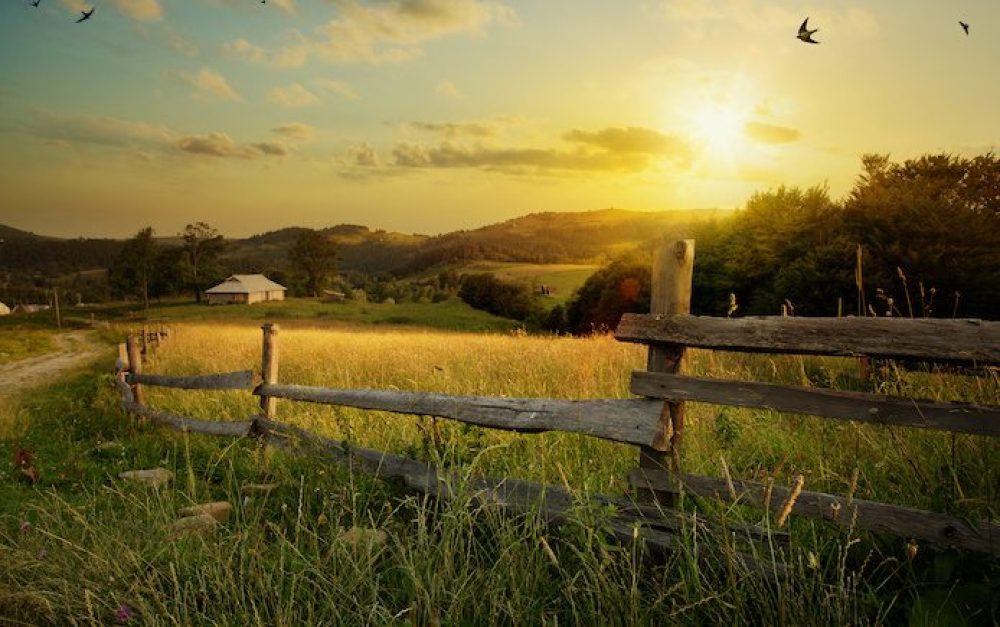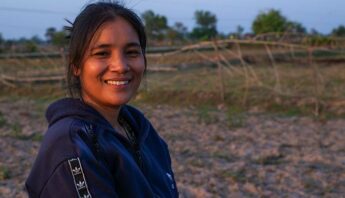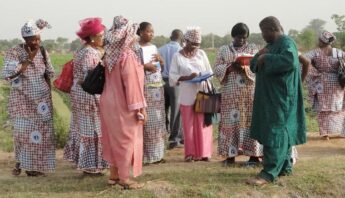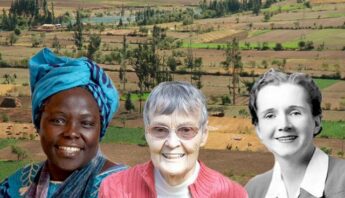The land on which we grow and forage food is a complex ecosystem that supports and sustains us; how we view ourselves in relationship to the land influences how we interact with it. In modern Western culture, land is viewed as something to be owned and used, rather than as an entity in its own right — a member of our community that works with us.
The land on which we grow and forage food is a complex ecosystem that supports and sustains us; how we view ourselves in relationship to the land influences how we interact with it. In modern Western culture, land is viewed as something to be owned and used, rather than as an entity in its own right — a member of our community that works with us. This view has also led to the exclusion of people of color and women from access to land. As of 2014, 98% of farmland is owned by white people and 94% of land is operated by white people. The social and economic structures that concentrate land ownership in only a few hands are the same ones that lead to mono-cropping, overuse of pesticides, and soil depletion. Working to change how land is cared for and who has access to it is critical to shaping a more just and equitable future for all.
The Land Access Alliance (LAA) is an emerging nonprofit located in Northeast Minnesota working to reshape how communities value the land where our food comes from, and the people who grow and harvest the food that supports and nourishes our communities. We believe in a just and equitable future that demands us to view land as more than property, and that anyone who wants to care for the land and produce food for their communities should be able to do so.
Land ethic for a sustainable future
Farmers and foragers deeply rooted in place are connected to the land. For generations, farmers have relied on understanding weather, soil, biodiversity and cycles that allow successful food production. In our human history, it is only relatively recently that we started to alter the Earth’s natural cycles so dramatically through technology that allows us to take more from the land than we give back. The impacts of this shift toward high use of pesticides, herbicides, chemical fertilizers, and monocultures are seen in loss of biodiversity, soil depletion, water pollution, and disease.
However, there is a better way! Producing food through a deep connection with the Earth and ecosystems goes hand-in-hand with empathy and respect for people and the world we live in. We can work with the natural world rather than against it, and this starts with how we view ourselves in relationship with the land. If we engage with land as more than property to be owned and do with as we please, we will fundamentally shift a paradigm rooted in oppression. We will begin to see the land as part of our community — a community member that we care for, listen to and respect — and we will change how we interact with it.
Land access
Part of the change that is necessary is about who has access to farmland. As I mentioned earlier, 98% of farmland in America is owned by white people who are mostly male. Land is now tied closely to personal and family wealth, and land prices — especially near our large urban areas — are becoming inaccessible to many people. Black, Indigenous and People of Color (BIPOC) communities, women, and impoverished people have been excluded from land ownership throughout our country’s history through colonial exploitation, land theft and enslavement that led to racially discriminatory laws, prohibitive lending practices, and inaccessible land financing
When we consider the 9 planetary boundaries, providing access to land and a means to build personal and community wealth is the foundation for a just and sustainable food system. We need people willing to farm in a knowledgeable, caring and regenerative way, and we need to ensure that anyone who wants to participate in this way is able to!
The Alliance
Creating just and sustainable farming and foraging opportunities to support our food system is long term work done by many. The Land Access Alliance is committed to being part of this movement. We are a woman-led organization that focuses on getting women, BIPOC and landless farmers and foragers access to land in our region.
LAA is dedicated to community engagement, systems change and a just and sustainable future. Our work includes lifting up and working collaboratively with the great work being done by others, listening to community needs, making space for land as a community member and asking questions with an open and inquisitive mind. Our mission is to create land access opportunities for farmers and foragers for fair and just participation in our local food system. Gathering land, sharing community, restoring trust.
We look with hope and work with gratitude toward a just and sustainable future. For more information about the Land Access Alliance you can check out our website or email info@landaccessalliance.org.







